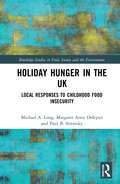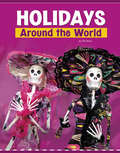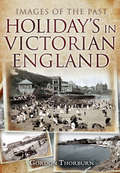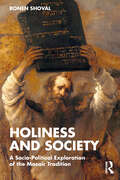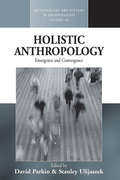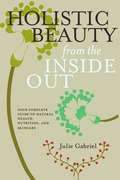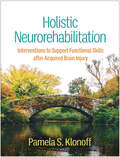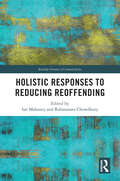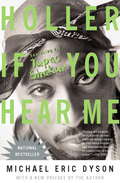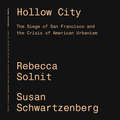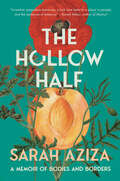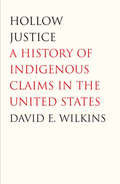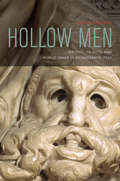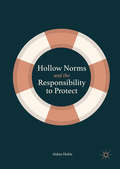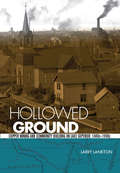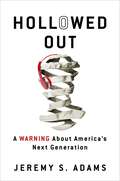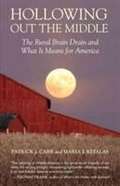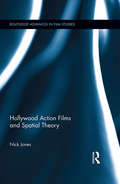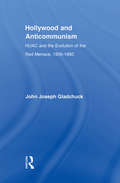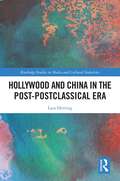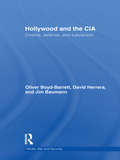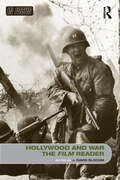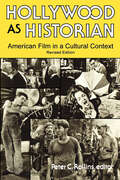- Table View
- List View
Holiday Hunger in the UK: Local Responses to Childhood Food Insecurity (Routledge Studies in Food, Society and the Environment)
by Michael A. Long Margaret Anne Defeyter Paul B. StreteskyThis timely and much-needed book focuses on the phenomenon often referred to as "holiday hunger" in the United Kingdom. The book begins by outlining the history and scope of holiday hunger – the condition that occurs when a child’s household is, or will become, food insecure during the summer holidays. The decline of the UK welfare state and the rise of neoliberalism have created a situation where up to three million children in the UK face food insecurity during the summer months when there are extra financial pressures on the working poor and when free school meals are not available. This book details the level of childhood and household food insecurity in the UK and describes one of the main responses to holiday hunger – holiday clubs. These clubs are locally organised and funded and provide a place for children to go to eat nutritious meals for free during the school holidays. Highlighting the benefits of holiday clubs that often extend beyond food provision, this book also discusses the challenges that they face now and in the future. The book concludes with recommendations for food insecurity policy and the role of government in fighting holiday hunger. This book will be of great interest to students and scholars of food and nutrition security, social policy and public health.
Holidays Around the World (Customs Around the World)
by Wil MaraGet ready to celebrate! People around the world look forward to different holidays and honor them with special traditions. Learn about the many types of holidays and how they're celebrated in this engaging series that develops kids' understanding of our diverse global community and their place in it.
Holidays in the Danger Zone: Entanglements of War and Tourism (Critical War Studies)
by Debbie LisleHolidays in the Danger Zone exposes the mundane and everyday interactions between two seemingly opposed worlds: warfare and tourism. Debbie Lisle shows how a tourist sensibility shapes the behavior of soldiers in war—especially the experiences of Western military forces in &“exotic&” settings. This includes not only R&R but also how battlefields become landscapes of leisure and tourism. She further explores how a military sensibility shapes the development of tourism in the postwar context, from &“Dark Tourism&” (engaging with displays of conflict and atrocity) to exhibitions of conflict in museums and at memorial sites, as well as advertising, film, journals, guidebooks, blogs, and photography. Focused on how war and tourism reinforce prevailing modes of domination, Holidays in the Danger Zone critically examines the long historical arc of the war–tourism nexus—from nineteenth-century imperialism to World War I and World War II, from the Cold War to globalization and the War on Terror.
Holidays in Victorian England (Images of the Past)
by Gordon ThorburnIn the country, holidaymakers were a rarity. The railways could take you almost anywhere, but it was only the middle classes who went. So there were no crowds, and many of our pictures show tourist hotspots before they were hot, before there was any such thing as a car park. The text provides local knowledge and background to the photographs and is an enjoyable read in itself, but the real pleasure is in seeing Brighton, Margate, Scarborough, Broadstairs, Clovelly, Ilfracombe, Minehead, before it all happened. See Exmoor, the White Peak, Somerset, when the loudest noise was the click of the camera shutter.
Holiness and Society: A Socio-Political Exploration of the Mosaic Tradition
by Ronen ShovalExploring the subtle political philosophy within the Biblical narrative, this book presents enduring insights that complement Ancient Greek philosophy for contemporary political distinctions – uncovering overlooked socio-political ideologies to provide a unique perspective alongside the classical philosophical tradition.By adopting a sociological approach, Ronen Shovel interprets the Bible as a reflection of perspectives and ideologies, emphasizing the intricate dynamics between rulers and subjects, balancing justice, and power within societies. A key focus is the examination of holiness as a distinct political category, influencing institutions, ethics, justice, and even the use of force. This perspective challenges traditional religious scholarship, merging sociology with the concept of holiness.Holiness and Society enriches political philosophy, religious studies, and sociology, broadening their boundaries and offering fresh perspectives, serving as a bridge between antiquity and modernity, providing valuable insights into contemporary political thought.
Holistic Anthropology
by Stanley Ulijaszek David ParkinGiven the broad reach of anthropology as the science of humankind, there are times when the subject fragments into specialisms and times when there is rapprochement. Rather than just seeing them as reactions to each other, it is perhaps better to say that both tendencies co-exist and that it is very much a matter of perspective as to which is dominant at any moment. The perspective adopted by the contributors to this volume is that some anthropologists have, over the last decade or so, been paying considerable attention to developments in the study of social and biological evolution and of material culture, and that this has brought social, material cultural and biological anthropologists closer to each other and closer to allied disciplines such as archaeology and psychology. A more eclectic anthropology once characteristic of an earlier age is thus re-emerging. The new holism does not result from the merging of sharply distinguished disciplines but from among anthropologists themselves who see social organization as fundamentally a problem of human ecology, and, from that, of material and mental creativity, human biology, and the co-evolution of society and culture. It is part of a wider interest beyond anthropology in the origins and rationale of human activities, claims and beliefs, and draws on inferential or speculative reasoning as well as 'hard' evidence. The book argues that, while usefully borrowing from other subjects, all such reasoning must be grounded in prolonged, intensive and linguistically-informed fieldwork and comparison.
Holistic Beauty from the Inside Out: Your Complete Guide to Natural Health, Nutrition, and Skincare
by Julie GabrielCelebrated author of The Green Beauty Guide Julie Gabriel presents a comprehensive yet simple book that brings all four corners of the natural beauty paradigm together: natural skincare, holistic nutrition, stress-relief, and healthy lifestyle. A holistic nutritionist, Gabriel teaches her reader how to 'eat yourself beautiful' using building blocks from a wholesome diet, and as a long-time beauty writer and editor, reveals why beauty-boosting changes to our everyday lifestyles are essential in helping us to discover the allure we are looking for. Holistic Beauty from the Inside Out claims that true beauty radiates from inner physical and emotional harmony. Our body is equipped with a full set of tools to maintain and restore our intrinsic assets, and has enormous healing powers to rejuvenate our skin, hair, and nails. The book includes handy and straightforward lists of what products to avoid, what foods to eat, and natural recipes to use for skincare.read will bring you face to beautiful face with a new life of quality sleep, fresh air, lush nourishment, renewing relaxation, radiant skin, sparkling eyes, and sound mind.
Holistic Neurorehabilitation: Interventions to Support Functional Skills after Acquired Brain Injury
by Pamela S. KlonoffHighly practical and comprehensive, this book provides a multimodal framework for helping patients with acquired brain injuries to identify and achieve meaningful functional goals in the home and community. In a convenient large-size format, the volume features rich case examples and interdisciplinary tools and strategies. Post-acute cognitive, physical, communication, emotional, vocational, interpersonal, family, and quality-of-life domains are all addressed, using state-of-the-art restorative and compensatory approaches. Coverage includes both individual and group therapies. Fifty reproducible forms and handouts can be photocopied from the book or downloaded from the companion website. The website also features a supplemental chapter on efficacy and outcomes research in neurorehabilitation, appendices with helpful resources, color versions of selected figures, and more.
Holistic Responses to Reducing Reoffending (Routledge Frontiers of Criminal Justice)
by Ian Mahoney and Rahmanara ChowdhuryOffering a range of theoretical and conceptual ideas as well as practical examples, this book provides a detailed insight into holistic opportunities for promoting desistance, reducing reoffending, and supporting (re)settlement and (re)integration.Providing a fresh lens through which to view existing debates within desistance and (re)settlement literature, the book encourages different perspectives and a new framing of current approaches. To this purpose, each chapter considers what embedding a person-centered holistic approach within the criminal justice system might look like, including ways of working within the confines of current processes, potential ethical considerations and how to maximize the potential impact to reduce reoffending.Interdisciplinary in approach, Holistic Responses to Reducing Reoffending will appeal to students, scholars, practitioners and policymakers within criminology, criminal justice, penology and prison studies.
Holler If You Hear Me: Searching for Tupac Shakur
by Michael Eric DysonAcclaimed for his writing on Malcolm X and Martin Luther King, Jr. , as well as his passionate defense of black youth culture, Michael Eric Dyson is known as the "hip-hop intellectual. " With his Blackboard best seller Holler If You Hear Me, Dyson has reached his widest audience to date, bringing to life the hopes and dreams of slain hip-hop artist Tupac Shakur. Viewed by many as a "black James Dean," Tupac has attained cult status since his death six years ago, partly due to the posthumous release of several albums, three movies, and a collection of poetry. But Tupac lives on primarily because of the devotion of his loyal followers. Dyson helps us to understand why a twenty-five-year-old rapper, activist, poet, actor, and alleged sex offender looms even larger in death than he did in life. With his trademark skills of critical thinking and storytelling, Dyson examines the significance of Tupac Shakur for black youth, assessing the ways in which different elements of Shakur's persona-thug, confused prophet, fatherless child-are both vital and destructive. Deeply personal and sharply analytical at the same time, Dyson's book offers a wholly original way of looking at Tupac Shakur that will thrill those who already love the artist and enlighten those who want to understand him.
Hollow City: The Siege of San Francisco and the Crisis of American Urbanism (Haymarket Ser.)
by Rebecca SolnitReporting from the front lines of gentrification in San Francisco, Rebecca Solnit and Susan Schwartzenberg sound a warning bell to all urban residents. Wealth is just as capable of ravaging cities as poverty.
The Hollow Half: A Memoir of Bodies and Borders
by Sarah AzizaA brush with death. An ancestral haunting. A century of family secrets. Sarah Aziza&’s searing, genre-bending memoir traces three generations of diasporic Palestinians from Gaza to the Midwest to New York City—and back&“You were dead, Sarah, you were dead.&” In October 2019, Sarah Aziza, daughter and granddaughter of Gazan refugees, is narrowly saved after being hospitalized for an eating disorder. The doctors revive her body, but it is no simple thing to return to the land of the living. Aziza&’s crisis is a rupture that brings both her ancestral and personal past into vivid presence. The hauntings begin in the hospital cafeteria, when a mysterious incident summons the familiar voice of her deceased Palestinian grandmother.In the months following, as she responds to a series of ghostly dreams, Aziza unearths family secrets that reveal the ways her own trauma and anorexia echo generations of violent Palestinian displacement and erasure—and how her fight to recover builds on a century of defiant survival and love. As she moves towards this legacy, Aziza learns to resist the forces of colonization, denial, and patriarchy both within and outside her.Weaving timelines, languages, geographies, and genres, The Hollow Half probes the contradictions and contingencies that create &“nation&” and &“history.&” Blazing with honesty, urgency, and poetry, this stunning debut memoir is a fearless call to imagine both the self and the world anew.
Hollow Justice
by David E. WilkinsThis book, the first of its kind, comprehensively explores Native American claims against the United States government over the past two centuries. Despite the federal government’s multiple attempts to redress indigenous claims, a close examination reveals that even when compensatory programs were instituted, Native peoples never attained a genuine sense of justice. David E. Wilkins addresses the important question of what one nation owes another when the balance of rights, resources, and responsibilities have been negotiated through treaties. How does the United States assure that guarantees made to tribal nations, whether through a century old treaty or a modern day compact, remain viable and lasting?
Hollow Men: Writing, Objects, and Public Image in Renaissance Italy
by Susan GaylardThis book relates developments in the visual arts and printing to humanist theories of literary and bodily imitation, bringing together fifteenth- and sixteenth-century frescoes, statues, coins, letters, dialogues, epic poems, personal emblems, and printed collections of portraits. Its interdisciplinary analyses show that Renaissance theories of emulating classical heroes generated a deep skepticism about self-presentation, ultimately contributing to a new awareness of representation as representation.Hollow Men shows that the Renaissance questioning of “interiority” derived from a visual ideal, the monument that was the basis of teachings about imitation. In fact, the decline of exemplary pedagogy and the emergence of modern masculine subjectivity were well underway in the mid–fifteenth century, and these changes were hastened by the rapid development of the printed image.
Hollow Norms and the Responsibility to Protect
by Aidan HehirThis book explains why there is a pronounced disjuncture between R2P's habitual invocation and its actual influence, and why it will not make the transformative progress its proponents claim. Rather than disputing that R2P is a norm, or declaring that norms are insignificant, Hehir engages with post-positivist constructivist accounts on the role of norms to demonstrate first, that the efficacy of a norm is not directly related to the extent to which it is proliferated or invoked, and second, that in the post-institutionalization phase, norms undergo both contestation and (potentially regressive) reinterpretation. This volume analyses the evolution of R2P, and demonstrates that it has been steadily circumscribed and co-opted, so that today it has no power to meaningfully influence the behaviour of states. It is essential reading for academic audiences in the disciplines of International Relations and International Law.
Hollowed Ground: Copper Mining and Community Building on Lake Superior, 1840s-1990s
by Larry LanktonDetails a century and a half of copper mining along Upper Michigan's Keweenaw Peninsula, from the arrival of the first incorporated mines in the 1840s until the closing of the last mine in the mid-1990s.
Hollowed Out: A Warning about America's Next Generation
by Jeremy S. AdamsDo teachers have a front row seat to America&’s decline? Jeremy S. Adams, a teacher at both the high school and college levels, thinks so. Adams has spent decades trying to instill wisdom, ambition, and a love of learning in his students. And yet, as he notes, when teachers get together, they often share an arresting conclusion: Something has gone terribly wrong. Something essential is missing in our young people. Their curiosity seems stunted, their reason undeveloped, their values uninformed, their knowledge lacking, and most worrying of all, their humanity diminished. Digital hermits of a sort unfamiliar to an older generation, they have little interest in marriage and family. They largely dismiss—and are shockingly ignorant of—religion. They sneer at patriotism, sympathize with riots and vandalism, and regard American society and civilization as so radically flawed that it must be dismantled. Often friendless and depressed, they eat alone, study alone, and even &“socialize&” alone. Educators like Adams see a generation slipping away. The problems that have hollowed out our young people have been festering for years. A year of COVID-19 lockdowns and social distancing have magnified them. The result could be a generation—and our nation&’s future—lost in a miasma of alienation and stupefaction. In his stunning new book, Hollowed Out, Jeremy S. Adams reveals why students have rejected the wisdom, culture, and institutions of Western civilization—and what we can do to win them back. Poignant, frightening, and yet inspiring, this is a book for every parent, teacher, and patriot concerned for our young people and our country
Hollowing Out the Middle
by Patrick J. Carr Maria J. KefalasIn 2001, with funding from the MacArthur Foundation, sociologists Patrick J. Carr and Maria J. Kefalas moved to Iowa to understand the rural brain drain and the exodus of young people from America's countryside. They met and followed working-class "stayers"; ambitious and college-bound "achievers"; "seekers," who head off to war to see what the world beyond offers; and "returners," who eventually circle back to their hometowns. What surprised them most was that adults in the community were playing a pivotal part in the town's decline by pushing the best and brightest young people to leave. In a timely, new afterword, Carr and Kefalas address the question "so what can be done to save our communities?" They profile the efforts of dedicated community leaders actively resisting the hollowing out of Middle America. These individuals have creatively engaged small town youth-stayers and returners, seekers and achievers-and have implemented a variety of programs to combat the rural brain drain. These stories of civic engagement will certainly inspire and encourage readers struggling to defend their communities. From the Trade Paperback edition.
Hollywood Action Films and Spatial Theory (Routledge Advances in Film Studies)
by Nick JonesThis book applies the discourse of the so-called ‘spatial turn’ to popular contemporary cinema, in particular the action sequences of twenty-first century Hollywood productions. Tackling a variety of spatial imaginations (contemporary iconic architecture; globalisation and non-places; phenomenological knowledge of place; consumerist spaces of commodity purchase; cyberspace), the diverse case studies not only detail the range of ways in which action sequences represent the challenge of surviving and acting in contemporary space, but also reveal the consistent qualities of spatial appropriation and spatial manipulation that define the form. Jones argues that action sequences dramatise the restrictions and possibilities of space, offering examples of radical spatial praxis through their depictions of spatial engagement, struggle and eventual transcendence.
Hollywood and Anticommunism: HUAC and the Evolution of the Red Menace, 1935-1950 (Studies in American Popular History and Culture)
by John J. GladchukThis work concentrates on tracing the evolution of the so-called "red menace" phenomenon as a means of demonstrating the correlation between growing American paranoia and the success of the anticommunist campaign (1935-1955). The House Committee on Un-American Activities 1947 investigation of Hollywood, the nation's most visible industry, served a critical role in conjuring up anti-red hysteria and fanning the flames of virulent anticommunism. Using conveniently unjust tactics, the Committee "painted" targeted Hollywood personalities red and established the infamous blacklist - certified proof in the minds of many that "subversives" were indeed conspiring from within. A failed attempt on behalf of the "Hollywood Ten" to demonstrate the Committee’s undemocratic nature allowed HUAC to forge ahead with its investigation and establish the anticommunist foundation upon which Joseph McCarthy would construct his campaign. Hollywood and Anticommunism stands as an important contribution to McCarthy-era literature and should appeal to all interested in the early Cold War and the impact that unwarranted hysteria has had and continues to have on the growth and development of the nation.
Hollywood and China in the Post-postclassical Era (Routledge Studies in Media and Cultural Industries)
by Lara HerringThis book examines the contemporary relationship between Hollywood and China as case studies that help to define a new era in Hollywood film industry, style, and economics, which is termed the ‘post‑postclassical’ period.Centred around a case study of Legendary Entertainment, the analysis shows how the studio adopted and adapted its global strategies in order to gain access to and favour within the Chinese film market, and how issues of censorship and financial performance affected the choices they made. Demonstrating Legendary’s identity as a ‘post‑postclassical’ studio and examining how this plays into its China‑strategy, this book explores how this particular case and the necessary analysis of wider political economic relations offer a periodisation of the contemporary Hollywood‑China relationship.This book will interest students and scholars of media and film studies, as well as academics whose research interests include global cinema, Hollywood, Chinese cinema, transnational cinema, and film industry studies.
Hollywood and Hitler, 1933-1939 (Film and Culture Series)
by Thomas DohertyBetween 1933 and 1939, representations of the Nazis and the full meaning of Nazism came slowly to Hollywood, growing more ominous and distinct only as the decade wore on. Recapturing what ordinary Americans saw on the screen during the emerging Nazi threat, Thomas Doherty reclaims forgotten films, such as Hitler's Reign of Terror (1934), a pioneering anti-Nazi docudrama by Cornelius Vanderbilt Jr.; I Was a Captive of Nazi Germany (1936), a sensational true tale of "a Hollywood girl in Naziland!"; and Professor Mamlock (1938), an anti-Nazi film made by German refugees living in the Soviet Union. Doherty also recounts how the disproportionately Jewish backgrounds of the executives of the studios and the workers on the payroll shaded reactions to what was never simply a business decision. As Europe hurtled toward war, a proxy battle waged in Hollywood over how to conduct business with the Nazis, how to cover Hitler and his victims in the newsreels, and whether to address or ignore Nazism in Hollywood feature films. Should Hollywood lie low, or stand tall and sound the alarm?Doherty's history features a cast of charismatic personalities: Carl Laemmle, the German Jewish founder of Universal Pictures, whose production of All Quiet on the Western Front (1930) enraged the nascent Nazi movement; Georg Gyssling, the Nazi consul in Los Angeles, who read the Hollywood trade press as avidly as any studio mogul; Vittorio Mussolini, son of the fascist dictator and aspiring motion picture impresario; Leni Riefenstahl, the Valkyrie goddess of the Third Reich who came to America to peddle distribution rights for Olympia (1938); screenwriters Donald Ogden Stewart and Dorothy Parker, founders of the Hollywood Anti-Nazi League; and Harry and Jack Warner of Warner Bros., who yoked anti-Nazism to patriotic Americanism and finally broke the embargo against anti-Nazi cinema with Confessions of a Nazi Spy (1939).
Hollywood and the CIA: Cinema, Defense and Subversion (Media, War and Security)
by Oliver Boyd Barrett David Herrera James A. BaumannThis book investigates representations of the Central Intelligence Agency (CIA) in Hollywood films, and the synergies between Hollywood product, U.S. military/defense interests and U.S. foreign policy. As probably the best known of the many different intelligence agencies of the US, the CIA is an exceptionally well known national and international icon or even "brand," one that exercises a powerful influence on the imagination of people throughout the world as well as on the creative minds of filmmakers. The book examines films sampled from five decades - the 1960s, 1970s, 1980s, 1990s and 2000s - and explores four main issues: the relative prominence of the CIA; the extent to which these films appeared to be overtly political; the degree to which they were favorable or unfavorable to the CIA; and their relative attitude to the "business" of intelligence. A final chapter considers the question: do these Hollywood texts appear to function ideologically to "normalize" the CIA? If so, might this suggest the further hypothesis that many CIA movies assist audiences with reconciling two sometimes fundamental opposites: often gruesome covert CIA activity for questionable goals and at enormous expense, on the one hand, and the values and procedures of democratic society, on the other. This interdisciplinary book will be of much interest to students of the CIA/Intelligence Studies, media and film studies, US politics and IR/Security Studies in general.
Hollywood and War, The Film Reader (In Focus: Routledge Film Readers Ser.)
by J. David SlocumDiscussing such classic films as Sergeant York, Air Force, and All Quiet on the Western Front, as well as more modern blockbusters like Apocalypse Now and Saving Private Ryan, this outstanding volume focuses on Hollywood and its production of war films.Topics covered include:the early formation of war cinemathe apotheosis of the Hollywood war filmthe ascendancy of ambivalenceHollywood and the war since Vietnamwar as a way of seeing. For any student of film studies or American cultural studies, this is a valuable companion.
Hollywood As Historian: American Film in a Cultural Context
by Peter C. Rollins“A commendably comprehensive analysis of the issue of Hollywood’s ability to shape our minds . . . invigorating reading.” ?BooklistFilm has exerted a pervasive influence on the American mind, and in eras of economic instability and international conflict, the industry has not hesitated to use motion pictures for propaganda purposes. During less troubled times, citizens’ ability to deal with political and social issues may be enhanced or thwarted by images absorbed in theaters. Tracking the interaction of Americans with important movie productions, this book considers such topics as racial and sexual stereotyping; censorship of films; comedy as a tool for social criticism; the influence of “great men” and their screen images; and the use of film to interpret history. Hollywood As Historian benefits from a variety of approaches. Literary and historical influences are carefully related to The Birth of a Nation and Apocalypse Now, two highly tendentious epics of war and cultural change. How political beliefs of filmmakers affected cinematic styles is illuminated in a short survey of documentary films made during the Great Depression. Historical distance has helped analysts decode messages unintended by filmmakers in the study of The Snake Pit and Dr. Strangelove. Hollywood As Historian offers a versatile, thought-provoking text for students of popular culture, American studies, film history, or film as history. Films considered include: The Birth of a Nation (1915), The Plow that Broke the Plains (1936), The River (1937), March of Time (1935-1953), City Lights (1931), Modern Times (1936), The Great Dictator (1940), The Grapes of Wrath (1940), Native Land (1942), Wilson (1944), The Negro Soldier (1944), The Snake Pit (1948), On the Waterfront (1954), Dr. Strangelove (1964), Who’s Afraid of Virginia Woolf? (1966), and Apocalypse Now (1979).“Recommended reading for anyone concerned with the influence of popular culture on the public perception of history.” ?American Journalism
